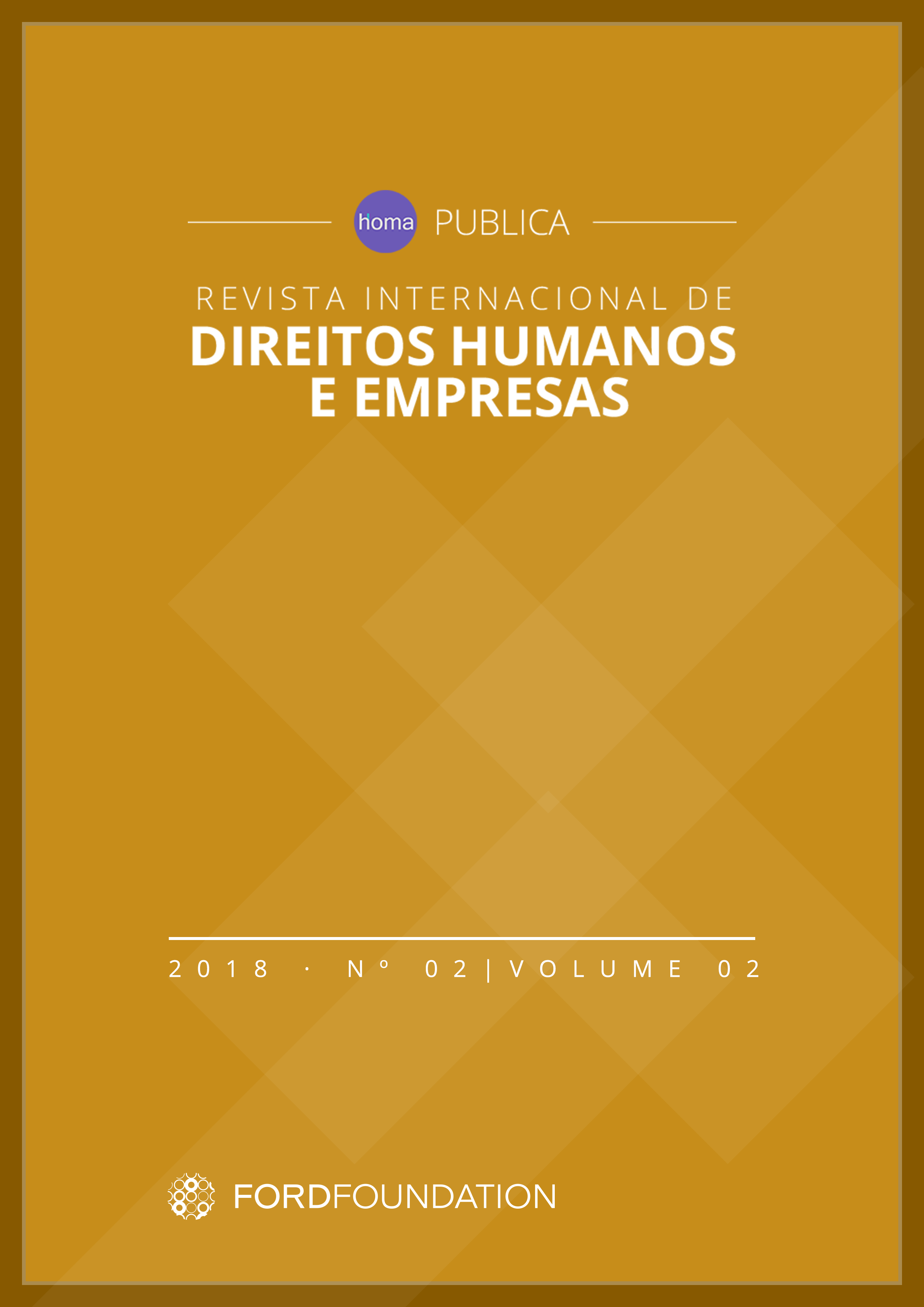Published 2018-07-31
Keywords
- Sharing economy,
- Sustainability,
- Developing countries,
- Brazil
How to Cite
Abstract
New models of entrepreneurship based on sharing have transformed business activity in the first decades of the twenty-first century. Sharing economy firms have been able to achieve global levels of success at an unprecedented pace. However, this niche of innovation ends up decentralizing and disrupting established socio-technical and economic structures, raising a number of sociological and legal questions. The current study aims to identify the limits of the Sharing Economy, particularly in developing countries such as Brazil. Although a critique of hyper-consumption was central to the emergence of the sharing economy niche, it seems to have turned into a purely economic opportunity with little concern for sustainability.
Downloads
References
BECK, Luisa. Berlin had some of the world’s most restrictive rules for Airbnb rentals. Now it’s loosening up. Março 2018. Disponível em: www.washingtonpost.com/world/europe/berlin-had-some-of-the-worlds-most-restrictive-rules-for-airbnb-rentals-now-its-loosening-up/2018/03/27/e3acda90-2603-11e8-a227-fd2b009466bc_story.html?noredirect=on&utm_term=.4444531ca067
BELK, Russel. You are what you can access: Sharing and collaborative consumption online. Journal of Business Research 67, 2014, pp. 1595–1600.
BRASIL, Decreto-Lei n.º 5.452, de 1º de maio de 1943. Disponível em: www.planalto.gov.br/ccivil_03/decreto-lei/Del5452.htm
BRASIL, Lei nº 13.467 de 13 de julho de 2017. Disponível em: www.planalto.gov.br/ccivil_03/_Ato2015-2018/2017/Lei/L13467.htm#art1
BROWN, Marvin T. Latin American Inequalities and Reparations em The Social Life of Economic Inequalities in Contemporary Latin America / Margit Ystanes, Iselin Åsedotter Strønen, Palgrave Macmillan, 2018, pp. 253-272.
BUCHER et al. What is mine is yours (for nominal fee). Exploring the spectrum of utilitarian altruistic motives for Internet-mediated sharing. Computers in Human Behavior, 62 (2016), pp. 316-326.
DELLAERT, B.G.C. The Consumer Production Journey: Marketing to Consumers as Co-Producers in the Sharing Economy (No. ERS-2018-001-MKT). ERIM report series research in management Erasmus Research Institute of Management, 2018.
IBGE. Desemprego volta a crescer no primeiro trimestre de 2018. Abril, 2018. Disponível em: agenciadenoticias.ibge.gov.br/agencia-noticias/2012-agencia-de-noticias/noticias/20995-desemprego-volta-a-crescer-no-primeiro-trimestre-de-2018.html
JONES, Jamila Jefferson. Airbnb and the Housing Segment of the Modern “Sharing Economy”: are Short-Term Rental Restrictions an Unconstitutional Taking?. Hastings Constitutional Law Quarterly, volume 42, nº 1, 2014, pp.557-576.
MARKAR et al. Sustainability transitions: An emerging field of research and its prospects. Research Policy, volume 41, 2012, pp. 955–967.
MARTIN, Chris J. The sharing economy: A pathway to sustainability or a nightmarish form of neoliberal capitalism? Ecological Economics, volume 121, janeiro 2016, pp. 149-159.
MARTIN et al. Commercial orientation in grassroots social innovation: Insights from the sharing economy. Ecological Economics, volume 118, outubro 2015, pp. 240-251.
NAÇÕES UNIDAS, ICT Facts and Figures 2016. Disponível em: www.itu.int/en/ITU-D/Statistics/Documents/facts/ICTFactsFigures2016.pdf
REICH, Robert. The Share-the-Scraps Economy, 2015. Disponível em: robertreich.org/post/109894095095
RODOTÀ, Stefano. A vida na sociedade de vigilância: a privacidade hoje. Rio de Janeiro: Renovar, 2008.
ROLNIK, Raquel. Guerra dos lugares: A colonização da terra e da moradia na era das finanças. Editora Boitempo, São Paulo, 2015.
ROLNIK, Raquel. Late Neoliberalism: The Financialization of Homeownership and Housing Rights. International Journal of Urban and Regional Research, volume 37.3, maio 2013, pp. 1058-1066.
SCHOR, Juliet. Debating the Sharing Economy. A Great Transition Initiative Essay, outubro 2014. Disponível em: greattransition.org/publication/debating-the-sharing-economy
SMORTO, Guido. The Sharing Economy as Means to Urban Commoning. Comparative Law Review, volume 7, 2015.
SØRBØE, Celina Myrann. Urban Development in Rio de JaneiroDuring the ‘Pink Tide’: Bridging SocioSpatial Divides Between the Formal and Informal City? em The Social Life of Economic Inequalities in Contemporary Latin America / Margit Ystanes, Iselin Åsedotter Strønen, Palgrave Macmillan, 2018, pp. 107-127.
WACHSMUTH et al. The High Cost of Short-Term Rentals in New York City. A report from the Urban Politics and Governance research group School of Urban Planning McGill University, janeiro 2018. Disponível em: www.sharebetter.org/wp-content/uploads/2018/01/High-Cost-Short-Term-Rentals.pdf
WAINWRIGHT, Oliver. Gentrification is a global problem. It's time we found a better solution. Setembro, 2016. Disponível em: www.theguardian.com/cities/2016/sep/29/gentrification-global-problem-better-solution-oliver-wainwright
WOSSKOW, Debbie. Unlocking the sharing economy: An independent review. Novembro, 2014. Disponível em: assets.publishing.service.gov.uk/government/uploads/system/uploads/attachment_data/file/378291/bis-14-1227-unlocking-the-sharing-economy-an-independent-review.pdf
ZHANG et al. What makes the sharing economy successful? An empirical examination of competitive customer value propositions. Computers in Human Behavior XXX, março 2018, pp.1-9.

